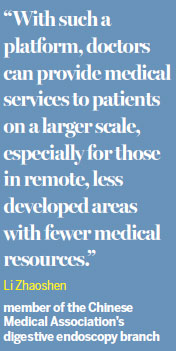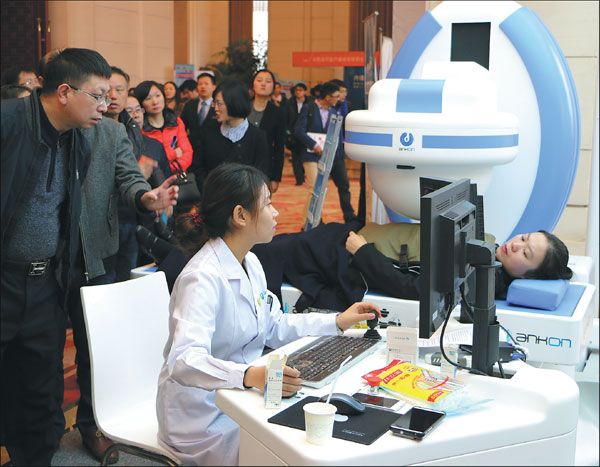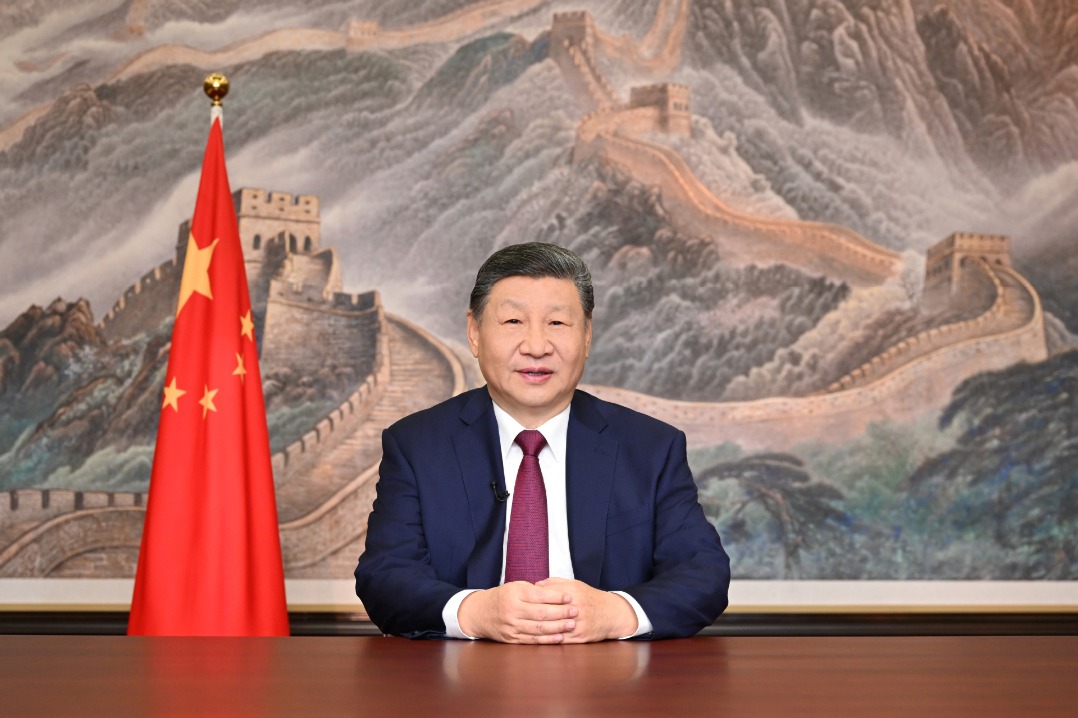Ankon Technology to work with IBM Research

Two companies team up to improve access to gastrointestinal care in remote areas, Wang Hongyi reports from Shanghai.
Shanghai Ankon Technologies recently announced plans to work together with IBM Research to explore the possibility of applying advanced cognitive imaging technology to screening for digestive tract diseases.
One of the world's largest corporate research organizations, IBM Research cooperates in research with partners across many disciplines to address some of the world's biggest medical challenges.
Such a partnership is also Ankon's latest attempt to improve the treatment of digestive diseases, said the company, which is located at Shanghai's Zhangjiang National Innovation Demonstration Zone, home to roughly 80 percent of Shanghai's scientific companies. It works to develop endoscope robots for examining the digestive tract.
| SHANGHAI ANKON TECHNOLOGIES, a high-tech company located in the Zhangjiang National Innovation Demonstration Zone, demonstrates how its capsule-like endoscope system works for a patient at an industrial fair. Provided to China Daily |
Its product NaviCam, a magnetically-controlled endoscope system used for regular stomach health checks and early stomach tumor screening, won China's Medical Progress Award in March.
Approved by the China Food and Drug Administration in 2013, the capsule-like system weighs less than 5 grams and can be swallowed with water. The patient's condition can then be recorded as it passes through the gastrointestinal tract.
Comprised of more than 300 parts and involving more than 40 international patents, the medical capsule robot combines a plethora of cutting-edge technologies, including sensors, optical imaging, image processing, wireless communications and device packaging.
The robot inside the capsule can take photos automatically as it passes through the gastrointestinal tract. The examination is conducted based on the anatomical structures of the stomach, the developer said.
"The entire gastric examination process can be completed within 15 minutes, and there is no adverse reaction," said Ji Pengsong, president of Ankon.
After the examination, the robot capsule is expelled naturally. Patients need no anesthesia.

The new procedure is convenient and comfortable, especially for sensitive people, such as children, the elderly or patients with cardiovascular diseases, Ji noted.
The domestically developed endoscope robot is a shining example of the next generation of technology in the field, he said.
China sees more than 600,000 new gastric cancer cases each year. Effective early detection has long been an important issue for medical staff.
Liao Zhuan, a gastroenterologist at Shanghai's Changhai Hospital, said about 80 million people have refused gastroscopic examinations due to fear of pain and discomfort during the procedure, which may be contributing to a higher incidence rate of gastric cancer in China.
So far, the capsule endoscope system has already been used in nearly 1,000 hospitals and medical centers across the country.
Last year, the China Health Promotion Foundation included the robot capsule system in a health management demonstration project.
To benefit more patients and expand the medical services to more remote areas, Ankon also developed a nationwide online medical network for cooperation between experts and scholars in the field from around the country.
The platform is able to run a digestive system healthcare database that connects more than 1,000 experts and doctors from the country's top hospitals and medical institutions.
Hospitals or health inspection agencies can upload patients' data to the cloud platform, which will then be read by a team of experts remotely.
Patients do not have to travel a long way to talk with an expert face-to-face at a large hospital. Via the online platform, transfer of medical images and consultations with experts can be done directly, no matter where the patient is located. Patients can be given advice for further treatment, transferred to larger hospitals for surgery or receive treatment in local medical communities.
"More convenience will be created for patients with the innovative intelligent medical care platform, which integrates big data," said Li Zhaoshen, a member of the Chinese Medical Association's digestive endoscopy branch. "With such a platform, doctors can provide medical services to patients on a larger scale, especially for those in remote, less developed areas with fewer medical resources."
Contact the writer at wanghongyi@chinadaily.com.cn
(China Daily European Weekly 05/05/2017 page27)
Today's Top News
- Full text: Chinese President Xi Jinping's 2026 New Year message
- Poll findings indicate Taiwan people's 'strong dissatisfaction' with DPP authorities
- Xi emphasizes strong start for 15th Five-Year Plan period
- PLA drills a stern warning to 'Taiwan independence' separatist forces, external interference: spokesperson
- Xi, Putin exchange New Year greetings
- ROK leader's visit to help boost bilateral ties































